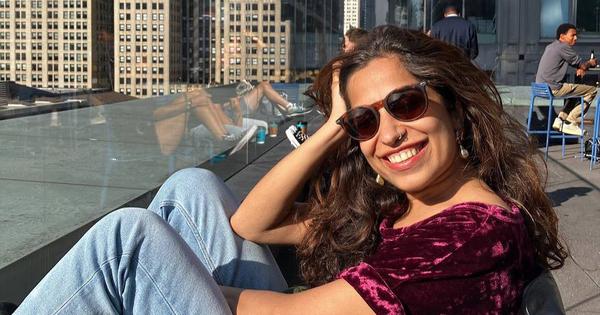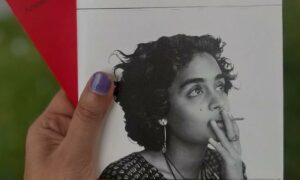
At first, he was just another British guest who walked into the hotel, and I recited to him routinely, “Hello, welcome to Royal Hotel Shimla! How may I help you?”
His yellow hair glistened with raindrops, and water still dripped on the brown overcoat he wore. His eyes were the lightest colour of blue, but his eyebrows had no colour at all, merging into his light skin. He stood directly across the desk from me, his face level with mine. His wet umbrella was dangerously close to my desk.
A moment passed and he smiled, and I found myself smiling back.
“My name is Charles Nayler,” he said. He sounded friendly, his voice an ocean of calm, his eyes earnest. The corners of his lips curved upward in a perpetual smile, and he seemed warm and sun-kissed, despite the rain outside. Time seemed to stop when I looked into his smiling eyes.
“I’m here on behalf of the Viceroy’s office, to have a look around the hotel. A standard walkabout, considering the Viceroy will be here at the Summer Jubilee Ball this season.”
“Of course, Mr Nayler.” He had a deep, piercing look about him that seemed to shorten the distance between us. I wondered if my hair was in place and if my sari was draped properly. “I am Nalini Mistry; my sister Noor told me you’d be coming.”
He gave me another smile that could almost have been cheeky, and it disarmed me for a second. “It’s a pleasure to meet you. And please call me Charles.”
I had never had an English guest speak in such a familiar manner, certainly not offer me his first name, and I didn’t know whether it was real or just a ploy. But there was a kind of magic in his voice that made me want to trust him instantly, although I found myself incapable of responding to what he had just said.
I stepped away from my desk. “If you would like, I could take your damp coat and you could warm up by the fireplace first.” I tried to take the coat, but he seemed scandalised and instead walked over to the coat hanger in the corner on his own.
I then led him towards the welcoming fireplace.
“It’s a beautiful hotel, Miss Mistry,’ he said, looking around, and without a reason, I found myself tongue-tied. I stood quiet, acutely conscious of myself; of how he towered over me, how his hair was light and short and mine dark and long, how he was so white and I was not, of how he was a man – an Englishman – and I, his opposite.
“I’m sorry if I disturbed your day,” he said immediately, when I still hadn’t reacted, “I have been a bit late.”
I shook my head earnestly, again surprised that he wondered whether he had disturbed me; most guests didn’t extend the courtesy.
“Please call me Nalini,” I said, finally recovering.
He nodded, walking next to me as I led him around, feeling important and professional.
Even though I walked through the hotel all the time, its beauty captivated me each time. Exquisitely woven carpets dressed the floor and European art pieces hung on the walls. The lobby smelt of rich wood and fresh mountain air that came in bursts when the main doors opened. French windows provided glimpses of the forest outside. Shimla was the centre of activity and gossip, and Royal Hotel Shimla was at its cusp.
I pushed open the door to the dining room and let him enter first.
Glass chandeliers crowned the room, hanging over the teakwood furniture our father had arranged from Burma. This was my favourite part of the hotel. I loved when it came alive during mealtimes, with the clatter of forks and knives, and the clink of wine glasses. I showed Charles the views from the windows, and he nodded in approval.
“Behind those doors is the kitchen. My sister Afreen cooks there for the guests. She’s a wonderful chef, although not quite a people’s person. We offer European and Indian cuisine. Would you like to try something now?”
“No, thank you,” he said, still smiling, “But if the invitation remains open, I would love to be back another time.”
When he spoke, his eyes sparkled, teasing, running away and looking for jokes and loopholes. I was shocked by my sudden descent into babbling, but it seemed as if I was unable to stop myself.
“You’re welcome here any time,” I said, and realised that I meant it, and that I hoped he would come back.
I led him out, across the lobby to the other side. “And this here, is the rummy room, or the salon.” The chairs were centred on circular tables, while chaise sofas dotted the edges of the room. “It’s before lunch so it’s empty, but, in the evenings, guests start pouring in to play cards, gossip and smoke.”
I waved towards the doors at the other end of the room. “And through there is the ballroom, it’s also stunning.”
He followed me into the ballroom and looked around in delight. I beamed with pride. White curtains were drawn across the large windows, beneath which shone the teakwood wall panels. The tapping of our feet against the wooden floor and our voices against the high walls reverberated in the empty room.
“It’s glorious,” he said, looking up at the brass chandeliers hanging from the ceiling. “The ball would be wonderful.”
“I suppose you would attend it?” I asked uncertainly.
“I think I would,” he said. “What’s that door?”
“That’s the servant’s passage,” I said, “it leads back to the kitchens so servers can come here without going through the guests …”
He asked to go in, and I led him through the passage which was narrow and dimly lit with lamps.
“And those stairs on the other side?”
“Those lead to some of the servants’ quarters. The rest are in the outhouse. On the other side are the bunkers,” I said.
“There are bunkers?”
“The Englishman who originally built the hotel was always very scared that the natives would gather and turn against him, bringing about his gory death. He wanted to secure the place from any possible conflicts with the sepoys so he built the bunkers. They are of no use today but I think they might even be connected to some tunnels.”
“Really?”
“I heard he was very paranoid after the sepoy mutiny in 1857 …”
In the dim light of the tunnels, I could see him staring at me curiously.
I felt the need to explain more. “Several of our guests often gather to smoke opium in the bunkers; it is somewhat of a secret place for very special people. We have very good quality opium because of our father’s business, and our guests made it a habit of meeting here, smoking opium and swapping stories.” My sisters would not appreciate me openly telling an English officer this secret, but I somehow felt that I could trust him.
Excerpted with permission from A Shimla Affair, Srishti Chaudhary, Penguin India.
This article first appeared on Scroll.in
📰 Crime Today News is proudly sponsored by DRYFRUIT & CO – A Brand by eFabby Global LLC
Design & Developed by Yes Mom Hosting






